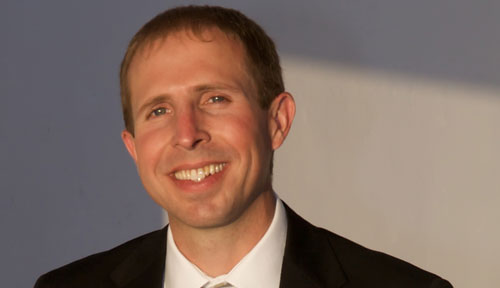This article is the latest in a series on clinical research at UNMC.
Tony Wilson, Ph.D., and his laboratory are currently studying healthy brains and their development using state-of-the-art, noninvasive brain imaging tools.
Dr. Wilson, associate professor in pharmacology and experimental neuroscience (PEN) and neurological sciences, has been a pioneer in the field of magnetoencephalography (MEG), using MEG-based imaging to identify the brain basis of severe psychiatric and neurological diseases — and to illuminate how therapeutic drugs and behavioral interventions modulate human brain function.
A critical time
“We are focusing on the 9-14 year-old time span because so much happens in this window,” Dr. Wilson said. “Children’s emotional development, their reasoning ability, and their judgments of self and others are taking on a whole new meaning during this time. Changes in the brain underlie these new cognitive and emotional feats and are occurring in parallel, yet we understand very little about how this unfolds in the healthy brain. We also don’t understand whether specific genes are in play to hasten the process and/or mold the trajectory in a specific direction, such as giftedness in math.”
Now, he and his team are focusing on how healthy brain networks change and maturate as 9 year-old children develop into 14 year-old adolescents.
This project is the centerpiece of a $5.9 million grant funded by the National Science Foundation (NSF). Working with a consortium that includes the Mind Research Network of the University of New Mexico and an engineering and genetics group at Tulane University in Louisiana, Dr. Wilson and his team will help explore how the brain works and how this changes as children make a critical developmental transition.
“Here at UNMC we’re mapping out brain function in super high resolution, so we’ll be able to see electrical activity going through the brain in real time,” Dr. Wilson said. “Then, we will escort the children out to a new MRI scanner that was installed at Boys Town, where we’ll map out changes in structure in very fine detail.
“We will then be able to combine these maps of brain structure and function and evaluate whether they develop in parallel, or whether specific structures become more set, allowing functional pathways to become precisely ‘written on top.’ The questions are very exciting and we have a fantastic team at UNMC to pursue them.”
In addition to the consortium, the team includes Max Kurz, Ph.D., and Maurice Godfrey, Ph.D., of the Munroe-Meyer Institute; Elizabeth Heinrichs-Graham, Ph.D., of PEN and Soonjo Hwang, M.D., of psychiatry, as well as other investigators across Omaha (see sidebar).
Research studies
If you are interested in having your child participate in this research study (IRB #503-15-EP), or if you would like to volunteer for a neuroimaging research study of adults (IRB #225-14-EP), please contact Nichole Knott at 402-552-6444.
In regard to the clinical impact, as Dr. Wilson puts it, the NSF is more interested in “big picture” questions, like how the brain actually works. They want to support science and ideas that may seem like science fiction today, but will someday have a major impact on our society and the way we approach disease and their treatment.
UNMC has been an international leader in developing clinical applications of MEG imaging, Dr. Wilson said, setting the standard for how data is analyzed to reveal the brain basis of neurological diseases, which then drives treatment development.
“Many of the most advanced techniques were partially developed here, or were first used on patient populations here. In applying these methods to patients with disease, we’ve been at the forefront.”

Tony Wilson is, by any measure, a rising star of our medical center. His skills as a neuroscientist, educator and academic leader have already impacted the many on a world wide stage. Congratulations Tony to you and your collaborators on this important project and for us its all fun to watch.
This sounds fascinating and hopeful! Best wishes in the research.
I was involved in the Rapid Autopsy (brain) Program (RAP) in the Alzheimer's study at the PEN department.
This is very interesting and life changing for many. I wish Dr. Wilson and his team great success!